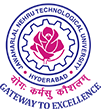Geographic information systems in their advanced form originated in late 90's. During this time Remote Sensing has become operational to provide basic information required for natural resources evaluation and environmental management. Remote sensing technology has played an important role in effective mapping and monitoring of the natural resources and environment. With the availability of the high resolution remote sensing data from Ikonos and Indian Remote Sensing Satellites, new areas of remote sensing applications have been identified. During the early days of the technology their use was limited to few groups. GIS instruction was even more limited to few groups. GIS instruction was even more limited to few universities fortunate enough to have faculty trained in GIS. Since then and particularly in late 90's the developments are quite amazing. The rate of change of education and training had been significant. In fact now the words GIS stand for Goegraphic Information Science giving a recognition that this discipline has gone well beyond a set of tools and techniques to a field of scientific investigation. The Centre for Spatial Information Technology has been in the forefront of GIS education and training in Jawaharlal Nehru Technological University. The M.Tech., program in Remote Sensing started in 1992 has become very popular in the industry with all our students placed changed into M.Tech., in Spatial Information Technology from the Academic year starting in the year 2000. The convergence of geographic information systems (GIS) and the world wide web has changed mapmaking forever. Suddenly GIS, until recently recently a specialized tool of scientists and city planners, is dispensing all manner of geographic information to an enthusiastic web based clients. In this context appropriated expertise is built in this university and is in the forefront in human resource development, research and consultancy.
VISION
To emerge as a centre of excellence in Geospatial Technology and allied fields to cater to the larger interest of the society and nation at large.
MISSION
· To strive for achieving and sustaining professionalism in Geospatial Technology in collaboration with Industry and academia.
· To nurture the spirit of innovation and creativity, and
· To harness and promote Geospatial Technology for national development.
|
Program Educational Objectives (PEOs)
1. To produce masters who would have developed a strong background in Remote Sensing, Image Processing, Surveying, Geographic Information System (GIS).
2. To produce masters who have the ability to serve country in the R&D domain on solving the problems in existing Geo Spatial engineering aspects using the cutting edge technology tools like ARCGIS, ARC OBJECTS, ERDAS IMAGINE etc.,
3. To produce masters `who would attain professional competence through lifelong
learning such as advanced degrees, professional registration, and other professional activities.
4. To produce masters who function effectively in a multidisciplinary
environment and individually, within a global, societal, and environmental context.
5. To produce masters who would be able to take individual responsibility and to work as a part of a team towards the fulfillment of both individual and organizational goals.
Programme Outcomes (POs)
Upon successful completion of the programme, the students would have the following attributes.
a. An ability to apply knowledge in interdisciplinary areas like physics, Electronics & Communications and big data concepts.
b. Shall be able to employ necessary techniques, advanced equipment and software tools for state of the art engineering methodologies for natural resources management.
c. Shall be able to solve problems through analytical thinking.
d. Shall be able to follow and contribute to the developments in their own field, within realistic constraints such as economic, social, ethical, environmental and sustainability.
e. Shall be able to communicate effectively.
f. Would have strong ethical and professional responsibility and adherence to quality.
g. Should recognize the need for and an ability to engage in lifelong learning like research field.
h. Should have knowledge of contemporary issues. |
|
Laboratory and Instruments: |
 |
|
Laboratories |
Instruments |
 |
Digital Image Processing Lab |
 |
Geographic Information Systems Lab |
 |
Digital Photogrammetry Lab |
 |
Visual Image Interpretation Lab |
 |
Surveying & Mapping Lab |
 |
Mobile Mapping & GPS Lab |
|
 |
Differential Global Positioning System |
 |
A0 Scanner |
|
|
|
|

